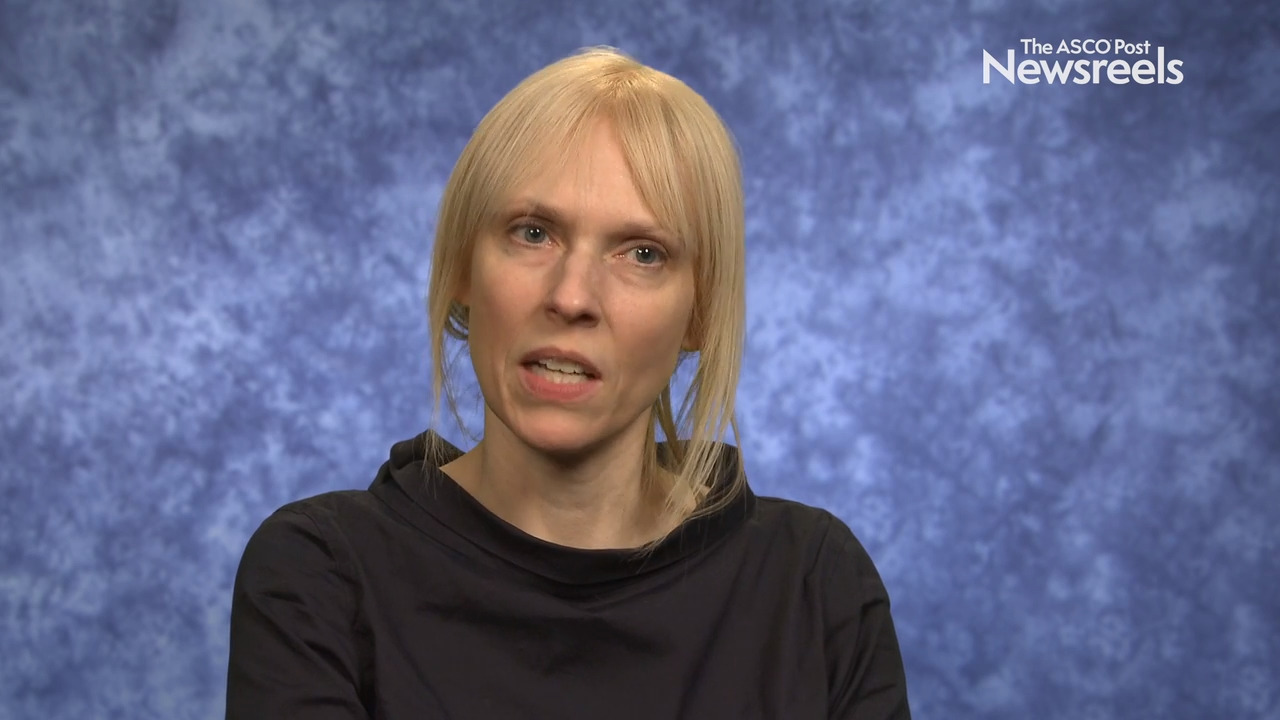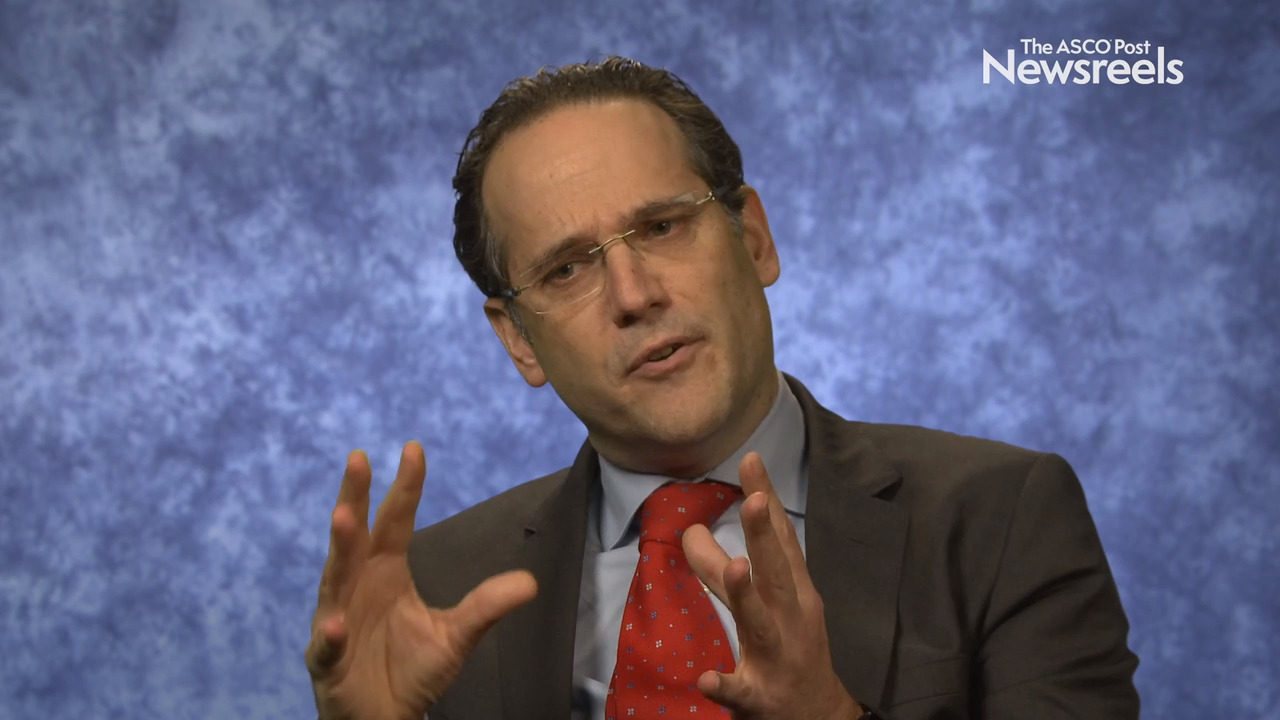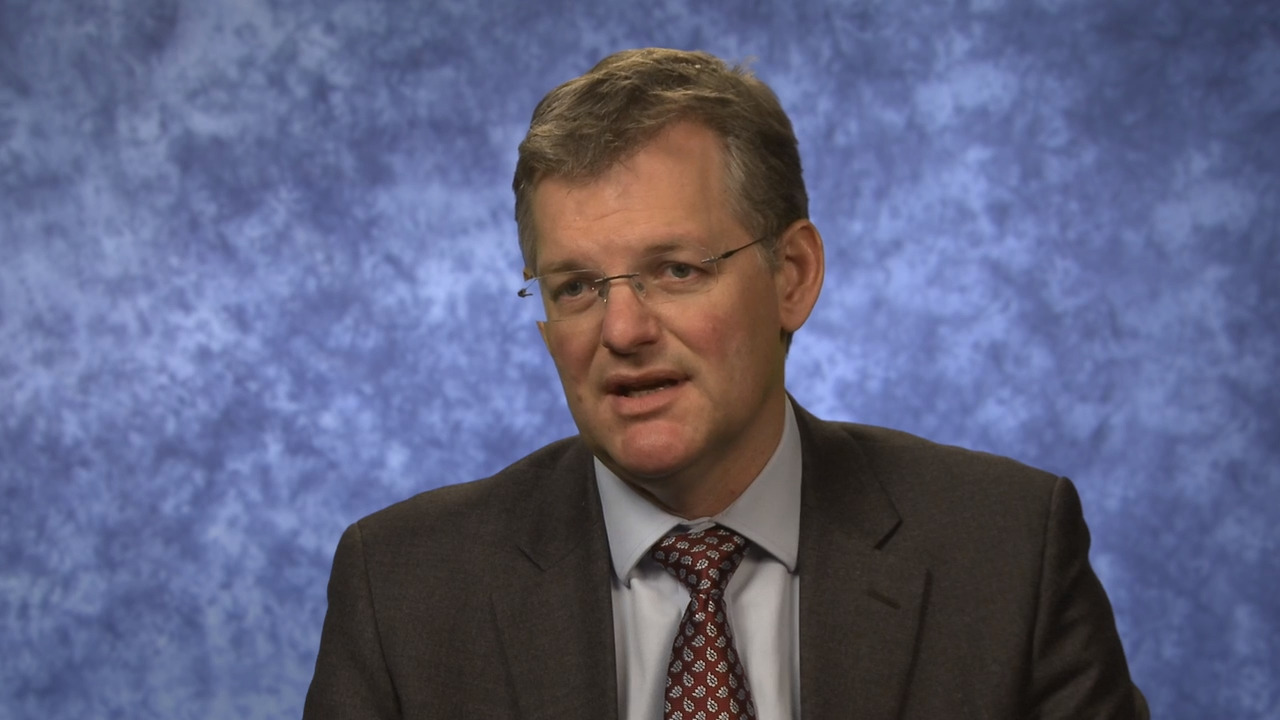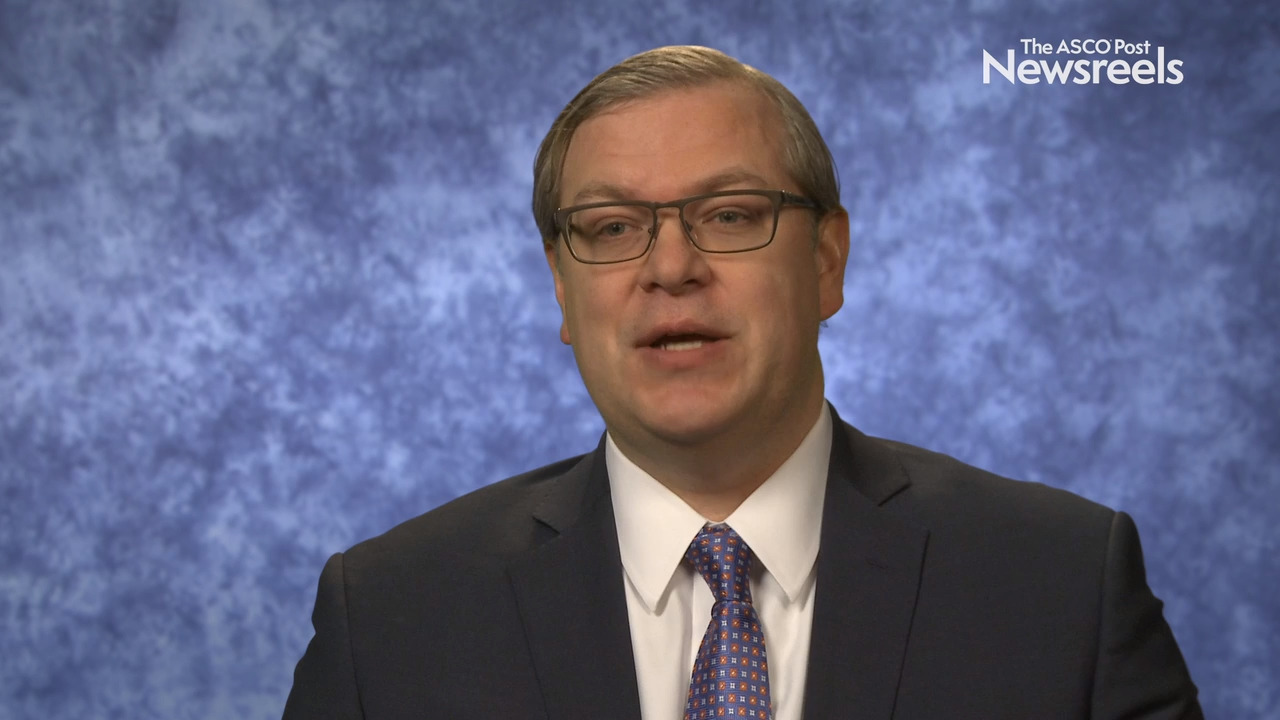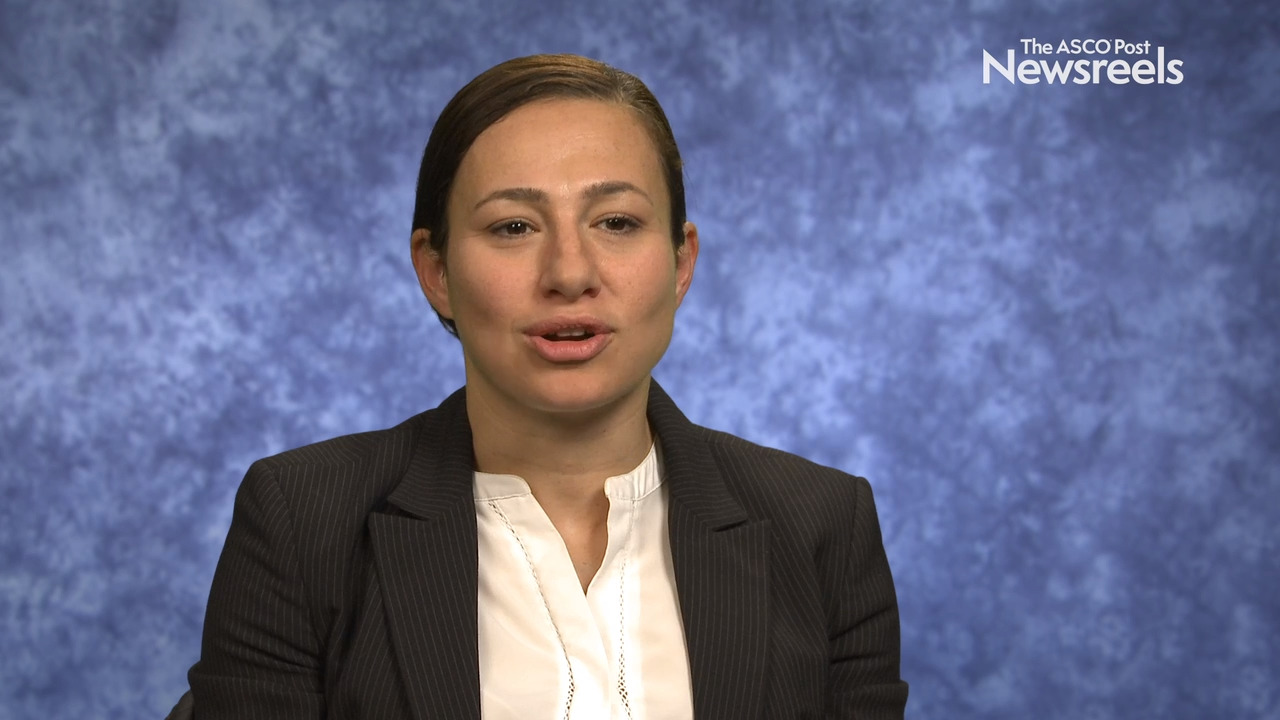Howard I. Scher, MD, on Prostate Cancer: Circulating Tumor Cells as a Surrogate Endpoint for Survival
2019 Genitourinary Cancers Symposium
Howard I. Scher, MD, of Memorial Sloan Kettering Cancer Center, discusses circulating tumor cell number as a transitional surrogate endpoint for survival in phase II trials on metastatic castration-resistant prostate cancer (Abstract 143).
Silke Gillessen, MD, of Cantonal Hospital St. Gallen, discusses data from a phase III study on the incidence of hypocalcemia in patients with castration-resistant prostate cancer treated with denosumab. The trial was designed to assess prevention of symptomatic skeletal events with denosumab administered every 4 weeks vs every 12 weeks (Abstract 139).
Ignacio Duran, MD, PhD, of the Hospital Universitario Marqués de Valdecilla, discusses an overall survival analysis of the phase III METEOR trial of cabozantinib vs everolimus in advanced renal cell carcinoma (Abstract 550).
Nicholas J. van As, MD, of The Royal Marsden NHS Foundation Trust, discusses an analysis of acute toxicity in the PACE-B study, which compared stereotactic body radiotherapy with conventionally fractionated or moderately hypofractionated external-beam radiotherapy for localized prostate cancer (Abstract 1).
Jason A. Efstathiou, MD, DPhil, of Massachusetts General Hospital, discusses the debate over treating muscle-invasive bladder cancer with radical cystectomy vs trimodality therapy.
Rana R. McKay, MD, of the University of California, San Diego, discusses phase II study findings on atezolizumab and bevacizumab in non–clear cell renal cell carcinoma and clear cell renal cell carcinoma with sarcomatoid differentiation (Abstract 548).
